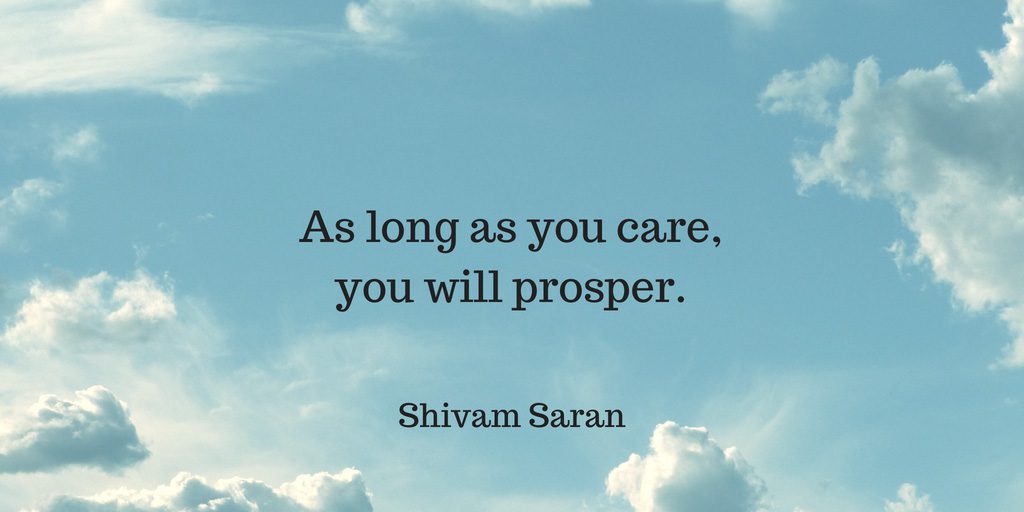In the ancient scriptures deeply ingrained within my Hindu culture, there lies an edict that defines the key towards achieving peace among humanity: Vichaar. From the day I was brought into the world, this simple yet preeminent concept served as a guiding principle for my life. My childhood consisted of endless songs praising this nirvana-bound ideology before I even knew the definition of it.
However, when I inquired the true definition of Vichaar from my father, I finally understood the importance associated with it.
“Son, vichaar is to care. As long as you care, you will prosper.”
Ergo, my father’s words resonated among my ears and the songs remained omnipresent. Unfortunately, however, my incessant singing of “vichaar” repeatedly had no influence on my ability to act with care. And as time passed, I soon came to a realization that I was not living by the ideology that my father had once envisaged. My luxurious lifestyle quickly engendered a manifestation of indisputably, the most flawed facet of my character: the inability to care.
Perhaps the most prevalent instant that revealed the implications of this flawed mentality was during my trip to India last summer. While expecting to encounter my relatives with excitement and rejoicing, I witnessed something quite different. My country, my culture, my home was plagued with poverty and destruction.
With weights of solicitude lying on my shoulders, I walked down my country’s destroyed streets. Soon, I came across a young boy. And in a moment of undisturbed quietude, the certitude of injustice stared into my soul. From the torn clothing grasping onto the feeble skin of the boy’s body to his light brown eyes submerged with tears, the agony that the child endured revealed itself. The injury to humanity wasn’t the poverty that subsisted within the boy but rather the injustice that dominated our society. For the boy’s lack of power was merely a reflection of the world’s inability to care.
Upon returning from my vacation, I began to contemplate how this problem can be mitigated. This false dichotomy created by our society intertwined with our world’s most impending issues has resulted in the emergence of one important question: How can caring and kindness be implemented more in your personal life and school?
And although this question seems insoluble, the answer is quite simple: Recognize the existence of a problem and act. Allowing ourselves to view a problem as one that actually exists rather than some mere putative reverie is the first step to success.
Let us not live our lives submerged in ignorance but rather through the words of revolutionary, Aaron Sorkin: “The first step in solving a problem is recognizing there is one.” Once completed, half the battle is won. And the benefits of acknowledgement extend far beyond poverty. Any issue, regardless of its magnitude, can be solved simply through the decision to care.
For far too long, I have let my personal aspirations blind me from the injustices of the world. However, with pure humility, I have learned that care triumphs ignorance. I have learned the true mantra that my father, my culture tried to teach me: A world without care is a world without love.
And by staring injustice in the eyes, fearlessly & caringly, humanity will be inextricably blessed with love, jubilation, and vichaar.

